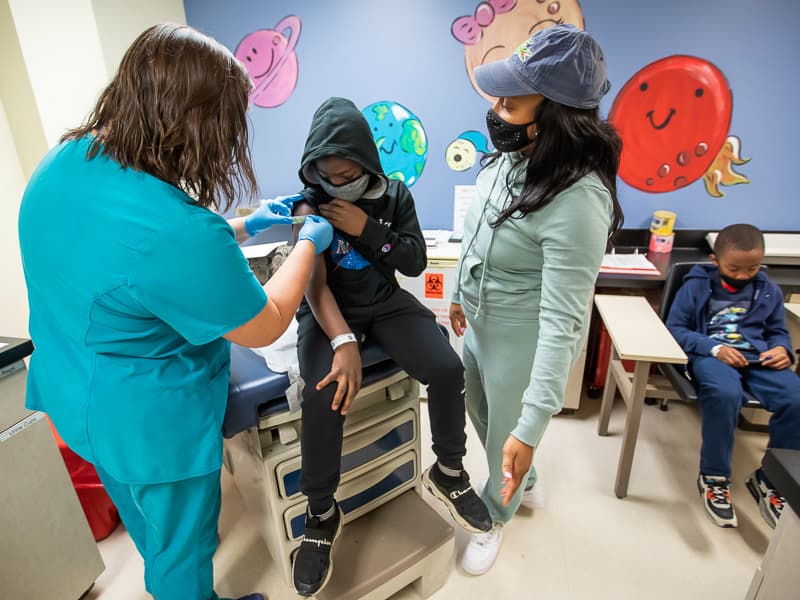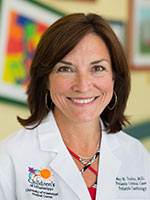UMMC COVID vaccination appointments now available for children 5 to 11

Parents should make appointments for their children online at umc.edu/healthcare/make-an-appointment or by calling (601) 815-5300 or (888) 815-2005. Batson Kids Clinic is located at 421 S. Stadium Circle in Jackson by Veterans Memorial Stadium.
The Batson Kids Clinic vaccination appointments are open to all children 5 to 11 years old and not just those who are Children’s of Mississippi or UMMC patients, said Dr. Benjamin Dillard, division director of general pediatrics and pediatric urgent care.

Children get a third of the dosage of the vaccine than adults in each of two shots, given 21 days apart. Just like adults, those 5 to 11 years old are considered fully vaccinated two weeks after the second vaccine dose.Dr. Mary Taylor, Suzan B. Thames Chair and professor of pediatrics, said vaccinations are a layer of protection for children as winter months and holidays approach.

Earlier this month, the U.S. Centers for Disease Control and Prevention approved an emergency use authorization for the Pfizer-BioNTech vaccine for children ages 5 to 11. Previously, the vaccine was available to ages 12 to 15 through an emergency use authorization approved in May.
The American Academy of Pediatrics recommends vaccinations for children 5 and older, and clinical trials of the Pfizer-BioNTech vaccine are underway among children as young as 6 months.
The vaccine received full approval from the CDC in August for use in those 16 and older.
The Pfizer-BioNTech vaccine has been shown to be nearly 91 percent effective in preventing COVID-19 in children ages 5 to 11, which gives Dr. April Palmer, professor and chief of pediatric infectious diseases, hope.

COVID-19's Delta variant caused the number of children hospitalized nationally to increase fivefold, according to the CDC. This summer, Children’s of Mississippi saw a “twin-demic” of RSV, a common respiratory infection, and COVID-19.
"It is a misconception that children are not affected by COVID-19," Palmer said. "Children can and do have symptoms that are life-threatening. Children are much less likely to have severe COVID-19, but we have had patients with it end up in the ICU and have 'long-COVID' symptoms that can last for months."
Common side effects of the vaccine include pain at the injection site, fever, chills, headache, fatigue and muscle and joint pain within 24 to 48 hours of vaccination.
Unvaccinated children visiting family members at risk for COVID-19 complications could transmit the virus during the holidays, Palmer said.
"A lot of schools are not masking, which makes vaccination the only way left to get protection from COVID while going to school in person," she said.
Taylor said vaccinations will allow children to attend school and holiday gatherings safely and visit friends and family.
"We all want to be together with our loved ones and enjoy the holidays without the risk of our children or friends and family contracting COVID-19," she said. "Vaccinating children against COVID-19 is an essential step toward a safer holiday season for everyone."


